Subsidise locally manufactured organic fertilisers — Scientists
As farmers prepare for the September-November rainy season, experts expressed concern that farm yields in most areas in the region were on the decline due to soil loss.
Dr. Jimmy Tindamanyire, a senior research officer at NARO, said that they were looking at multiple means of addressing challenges of increasing farm production. (Credit: Eddie Ssejjoba)
WAKISO - National Agricultural Research Organization (NARO) scientists have appealed to governments in the East and Central Africa region to subsidise locally manufactured organic fertilisers to enable farmers to access them.
The researchers have also urged farmers to embrace agroecology as a new farming technology of increasing soil fertility using organic manure to grow safe food for domestic consumption, and export market.
As farmers prepare for the September-November rainy season, the experts expressed concern that farm yields in most areas in the region were on the decline due to soil loss.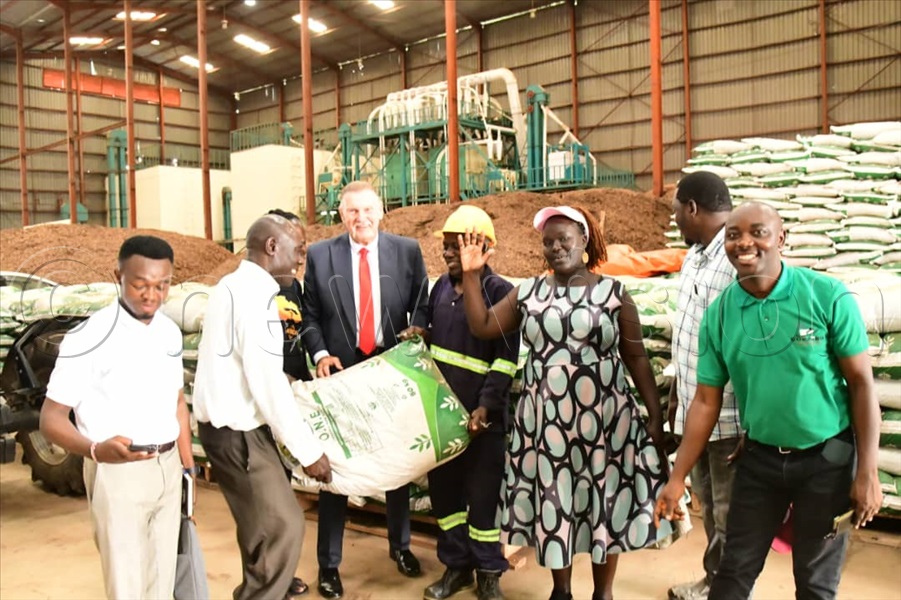
Jimmy Sherlock interacting with scientists. (All Photos by Eddie Ssejjoba)
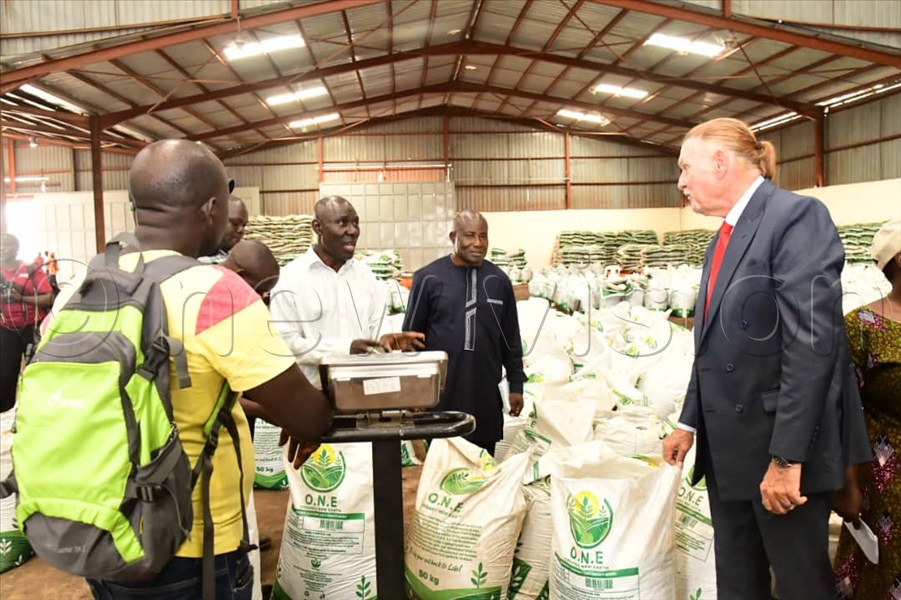
Scientists on a tour inside ONE organic factory in Kigoogwa, Matugga.
They recommended the use of organic fertilisers that have been proven to heal the soil in a shorter time and increase farming yields without applying harmful chemicals.
In so doing, they urge commercial farmers to target the European Union market, where demand for organic products is on the rise.
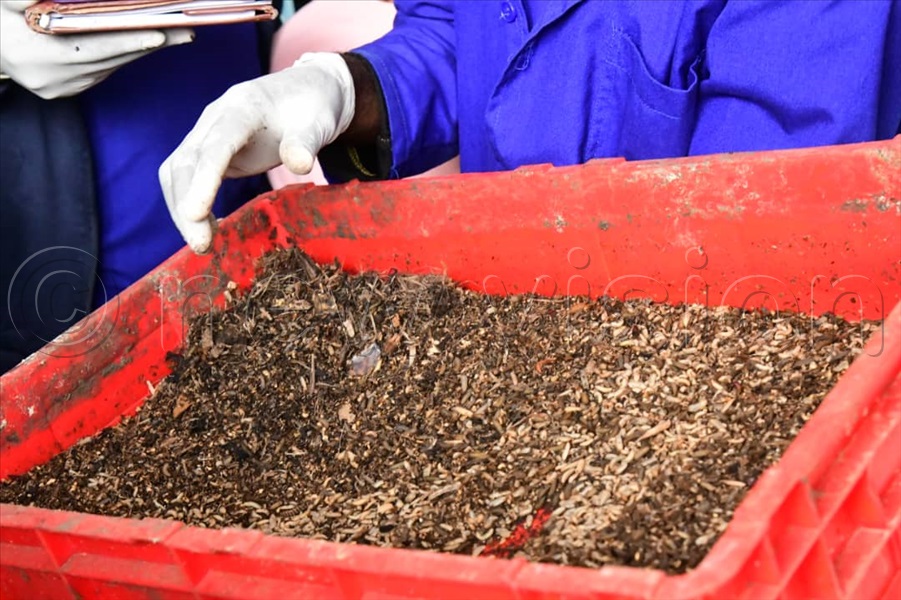
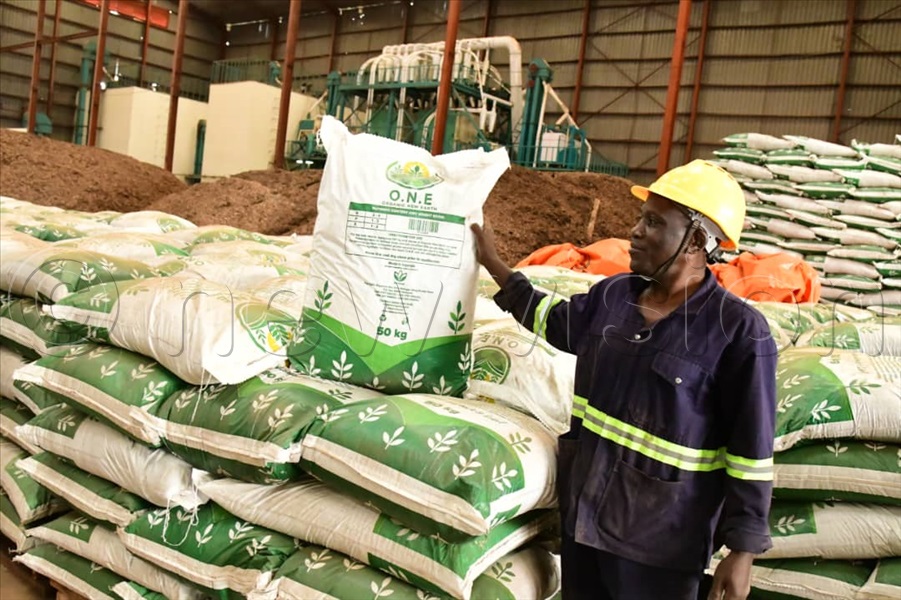
The scientists appealed, leading a team of researchers, extension workers, farmers and the private sector on a visit to two organic firms, Dei Organic International, with a plant in Matugga, Wakiso district, involved in the development and production of organic fertilisers known as Organic New Earth (O.N.E).
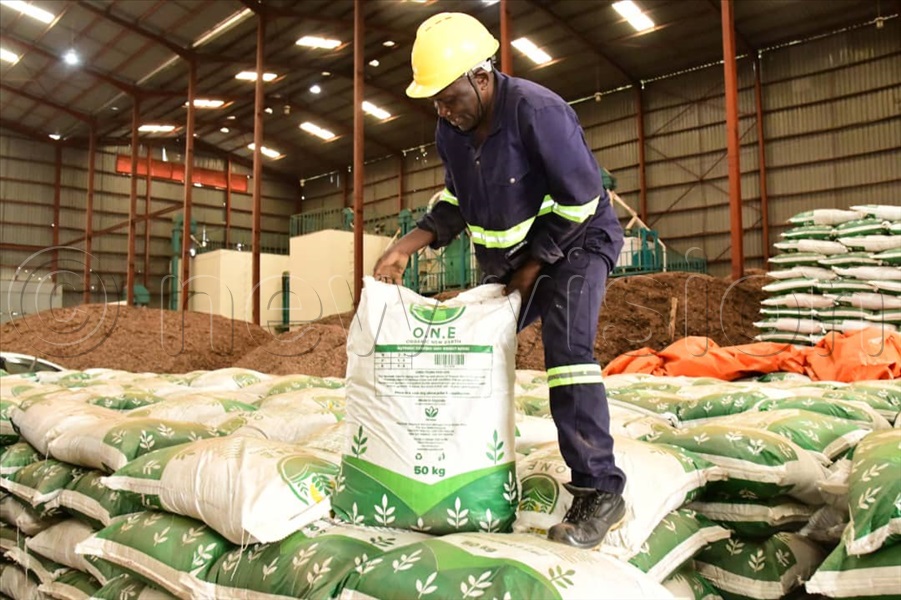
A sample of ONE organic fertilizers made by Dei Organics International.
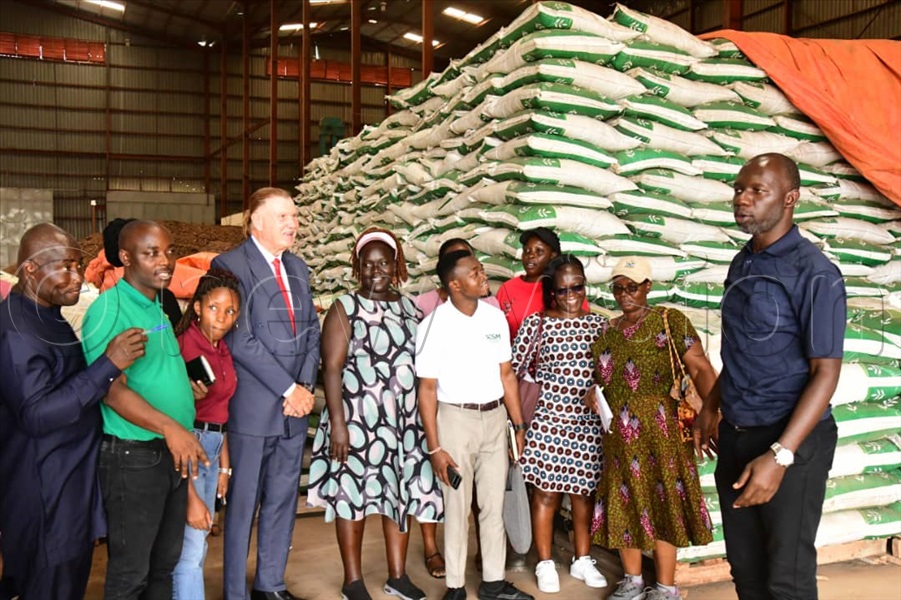
The fertiliser is made from a natural blend of chicken manure and green waste, designed to enhance soil health and boost agricultural productivity. They also visited Agape Innovations Limited, located in Ndejje, which produces organic manure from black soldier flies (BSF).
The scientists were in Uganda last week for a five-day training organised by the Association for Strengthening Agricultural Research in Eastern and Central Africa (ASARECA) and funded by the European Union through the International Fund for Agricultural Development (IFAD) and the Comprehensive Africa Agriculture Programme (CAADP).
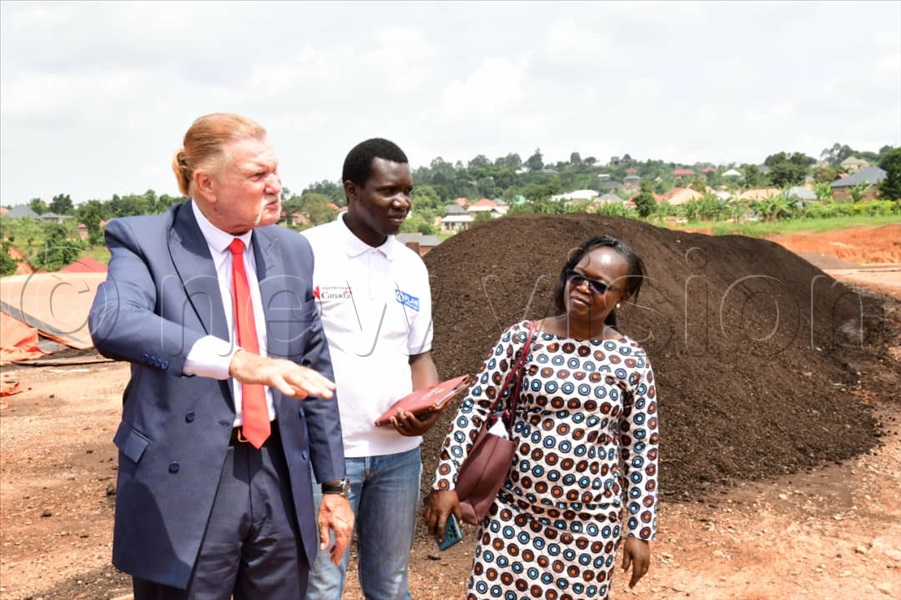
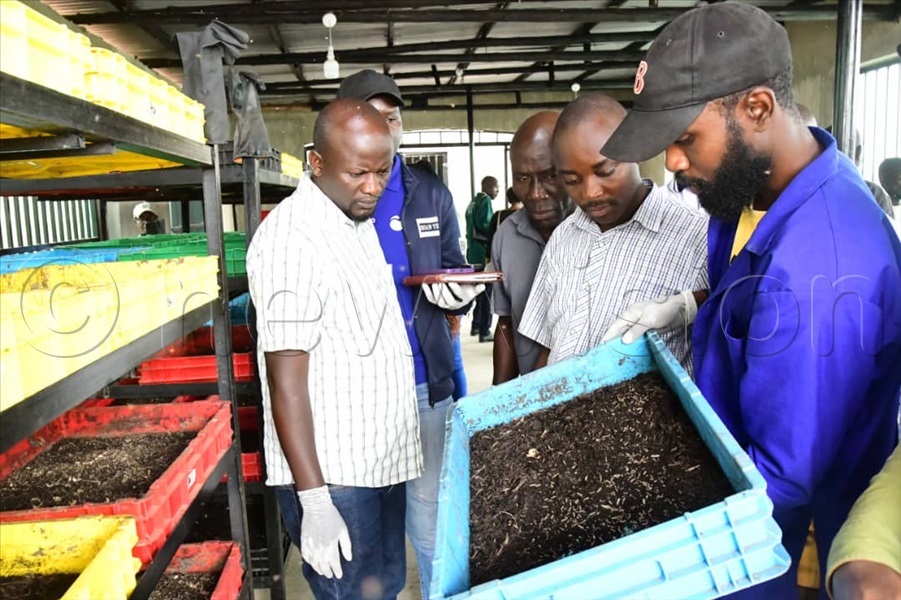
Dr. Onesmus Ssemalulu, a Principal Research Officer at NARO, said that the training that drew participants from the 15 African member states focused mainly on promoting agroecology, sustainable use of land for good farming activities and equipping farmers to do farming sustainability and environmentally sound.
“With agroecology, as one of the concepts, we minimize use of synthetic external chemicals, which means that we have to use natural products either for pest control, disease and soil management,” he said, adding that researchers from NARO recently discovered that organic fertilisers produced at Dei would help farmers to improve their soil nutrients and increase farm yields.
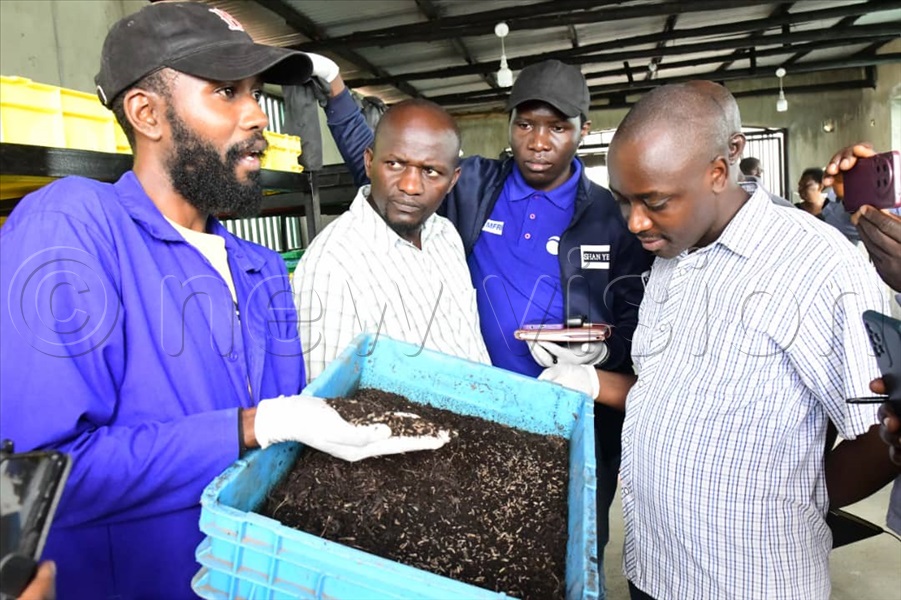
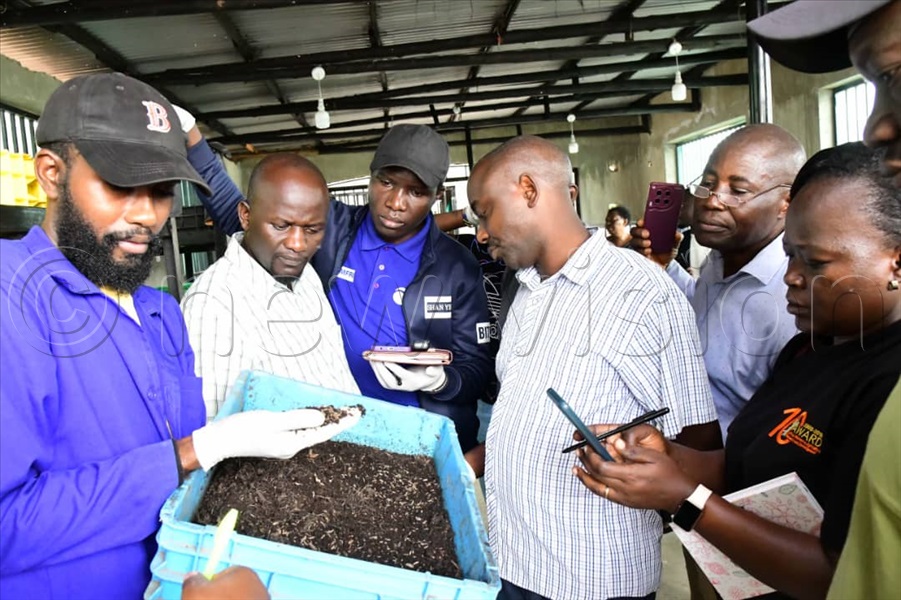
“Dei industries requested NARO to explore ways of working with them in the organic fertiliser production, and we undertook a laboratory analysis of their product, which we submitted to the agricultural ministry for potential registration of the product,” he said.
He added that the results showed that the product made from chicken droppings and sawdust was worth promoting because it has more nutrients compared to other products.
“I am happy that the company has started packaging the product for commercialisation,” he said. The team was received by Jimmy Sherlock, the chief executive officer of Dei Organics.
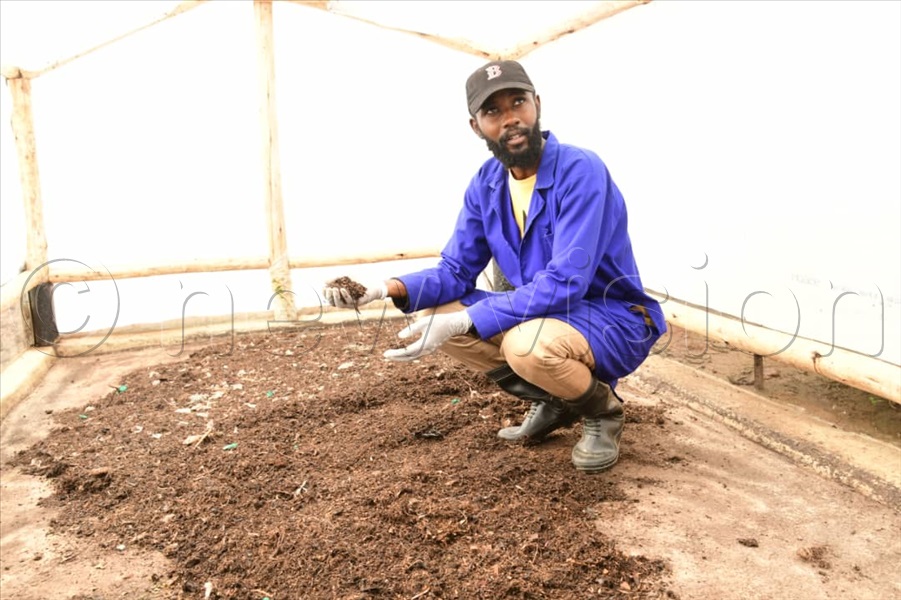
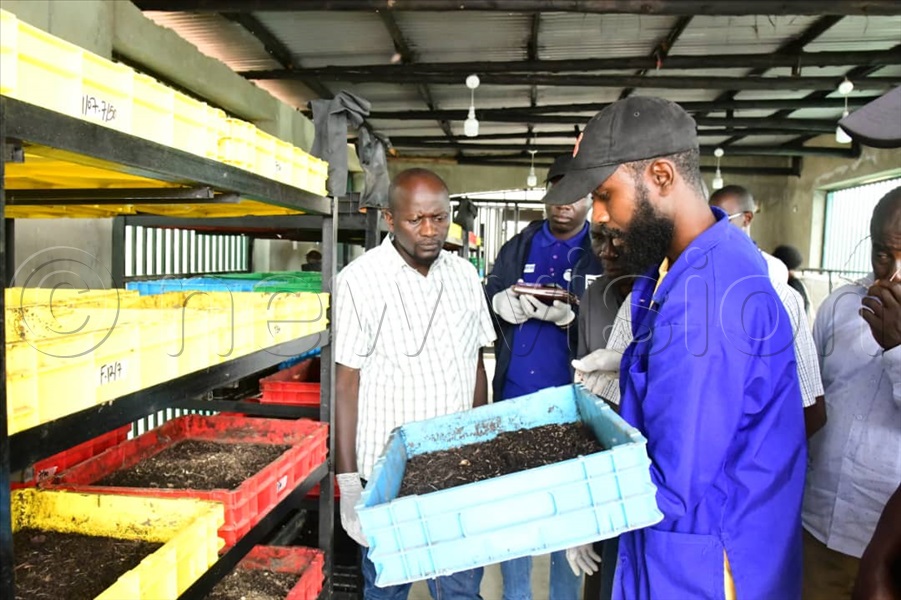
According to Dr. Ssemaluulu, use of organic materials helps to conserve water in the soil as well as providing nutrients and improving the soil's physical properties.
“Those attributes are good for plant growth, so using this product can improve our soil medium and restore its fertility. They also make the soil healthier. We therefore recommend the product for improvement of the quality of the soil, and its ability to support crops,” he explained.
He, however, said the pricing of the ONE product was still high and unaffordable for ordinary farmers.
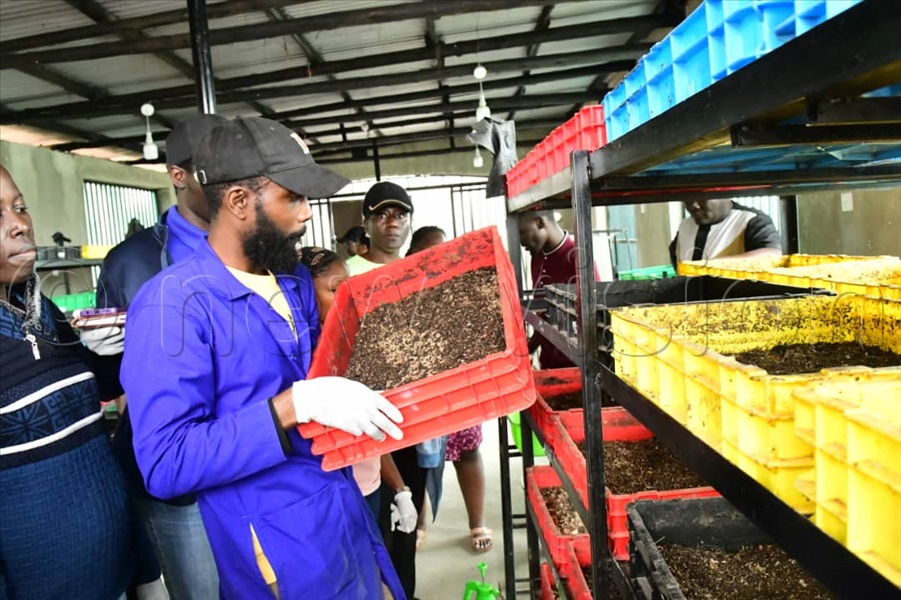
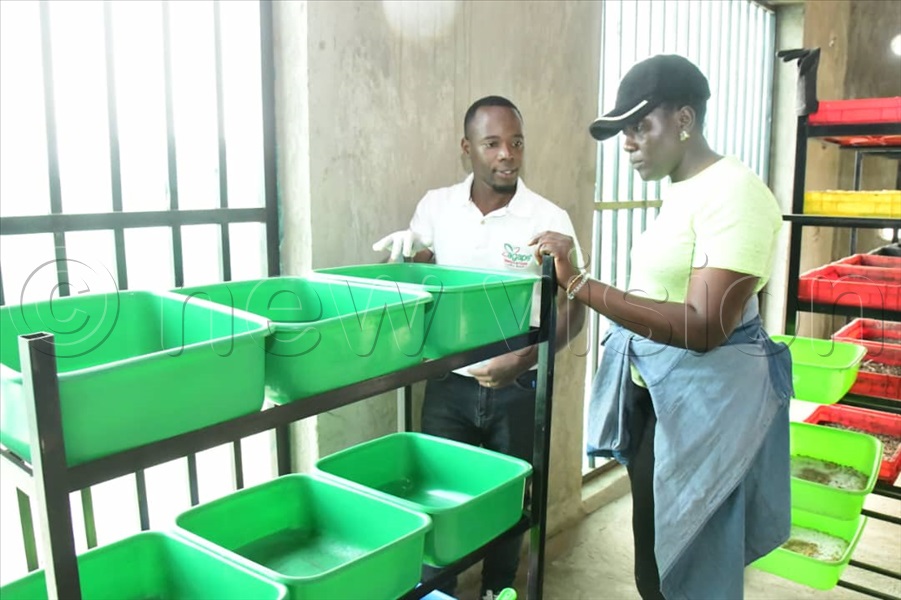
“We want the Government to intervene and provide subsidies and bring down the prices for the common farmer,” he said, adding that organic manure was still in short supply and the available ones were not standardised.
The researchers also visited Agape Innovations Limited at Kiyana-Kittanswa in Ndejje Town Council, Luwero district, which makes organic fertilisers from black soldier flies (BSF). They were received by Paul Mugisha, the founder and CEO.
He said the company collects food waste from some schools, markets and restaurants in Matugga town, which they utilise to make organic fertilisers and animal feeds.
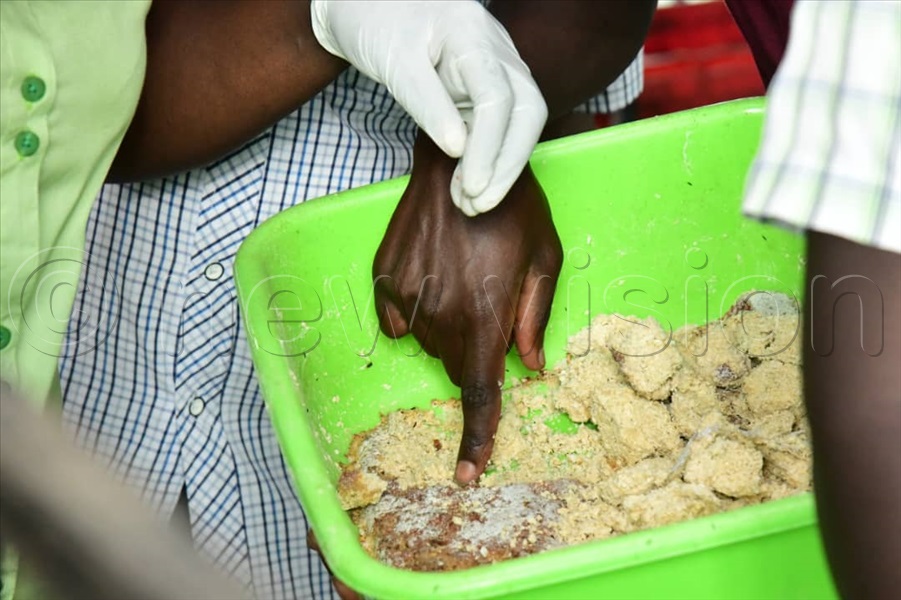
Some of the food leftovers sorted and processed before feeding them to black soldier flies.
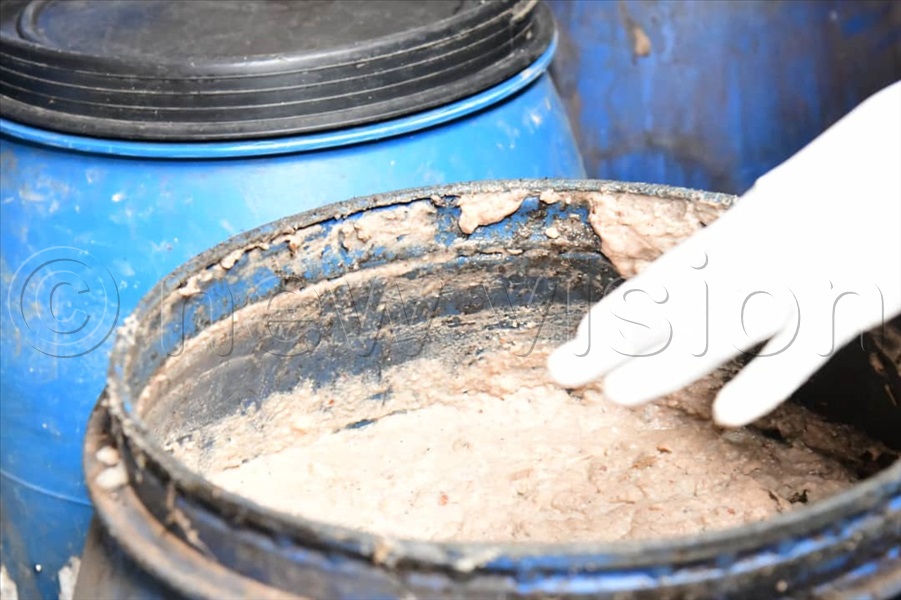
He said the BSF also produces larvae (maggots), which are either sold live or dried and crushed to make foam, which is fed as protein for animals.
Dr. Jimmy Tindamanyire, a senior research officer at NARO, said that they were looking at multiple means of addressing challenges of increasing farm production.
“Because we are faced with problems of poor genetic resources. With bananas, cocoa and coffee, for example, we have a very low base that is already in the farmers' field. We also have disease pressure, temperature fluctuations, sometimes it is too hot or too wet, all these come with challenges to the cropping environment,” he stated.
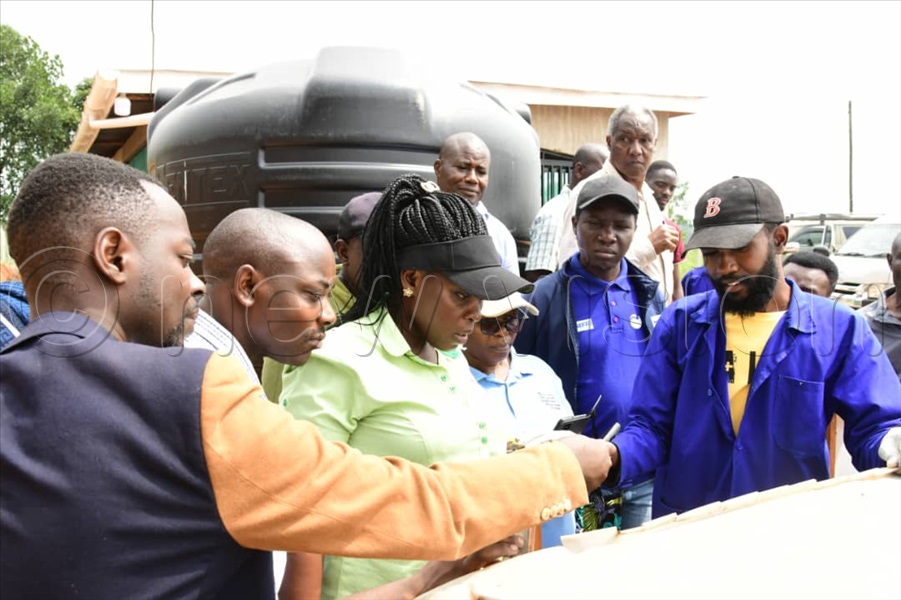
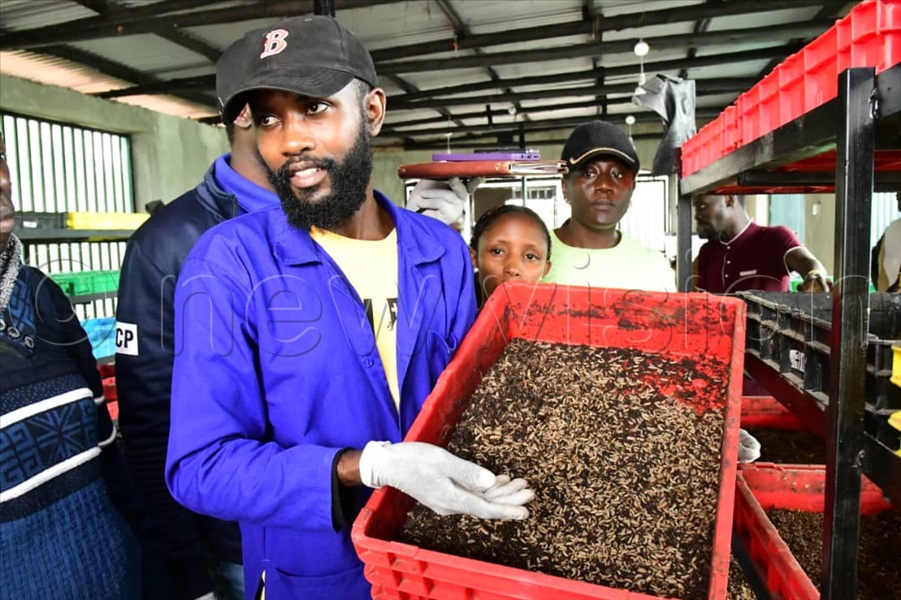
He said many farmers get a variety of high-yielding crops, but the soil in their gardens is bad, and they keep toiling and getting nothing.
“We therefore welcome companies like Dei Organics and Agape Innovations that are helping to amend the soil system and improve on the farm yields,” he said.
He also expressed concern about the prices of the products, especially for average Ugandan farmers.
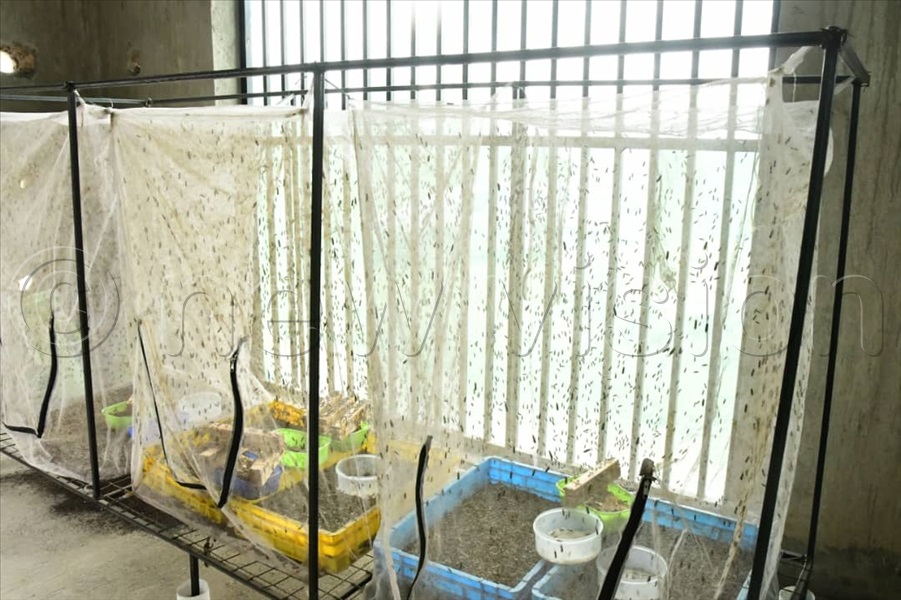
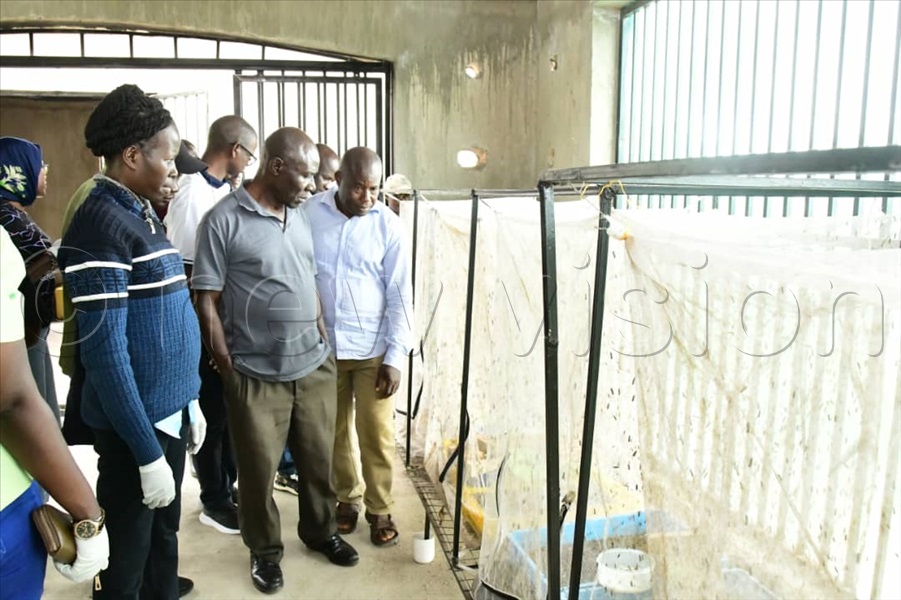
“We need to have a subsidy by the government, like tax holidays, so that the manufacturers produce in larger quantities and scale down the prices,” he said.
Robert Guloba, one of the experts, commended Agape Innovations, saying that with the BSF technology, they had introduced the ‘circular economy’ where everything goes out and comes back.
“Agroecology emphasises recycling, which means that what others termed as waste is brought back to use,” he said, adding that making fertilisers from compost manure collected from markets and hotels was introducing new technology to farmers who will learn to recycle every waste for enriching their soils.
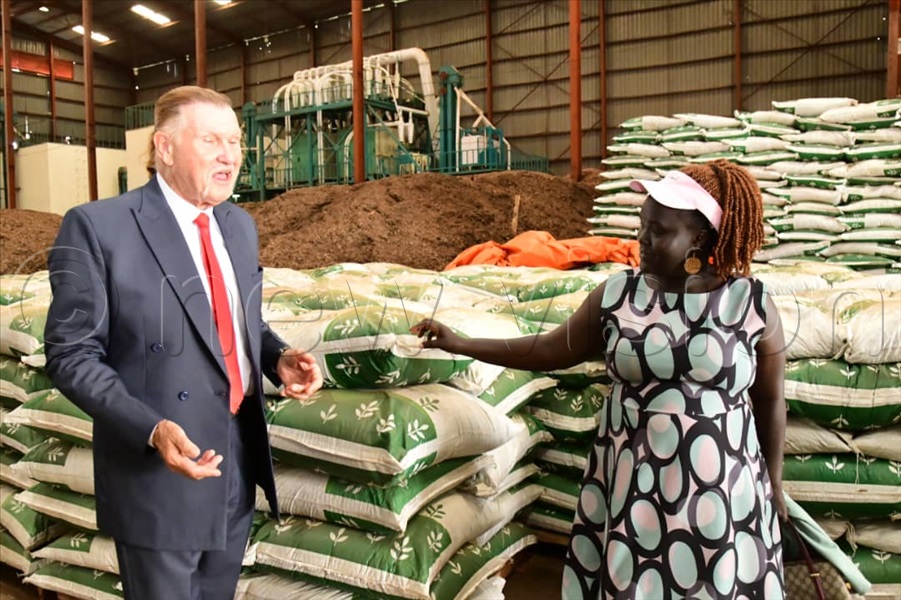
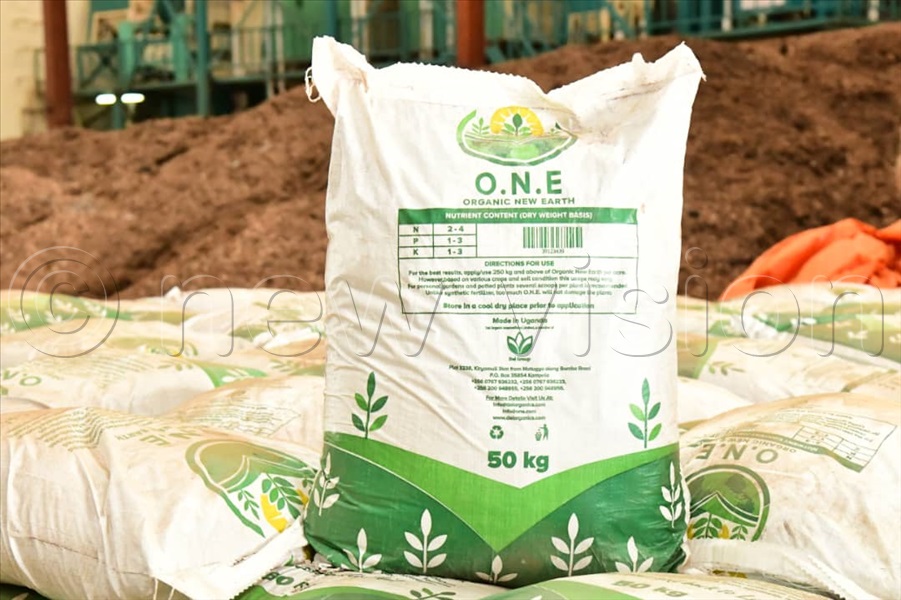
Sherlock told the scientists that O.N.E. organic fertilisers help to heal the land, and a farmer can use them over time without losing the nutrients.
“Every time you use the ONE product, you are enriching the soil more and more, and it allows the root system to grow so strong,” he said, adding that the product was great news to the farmers of Uganda.
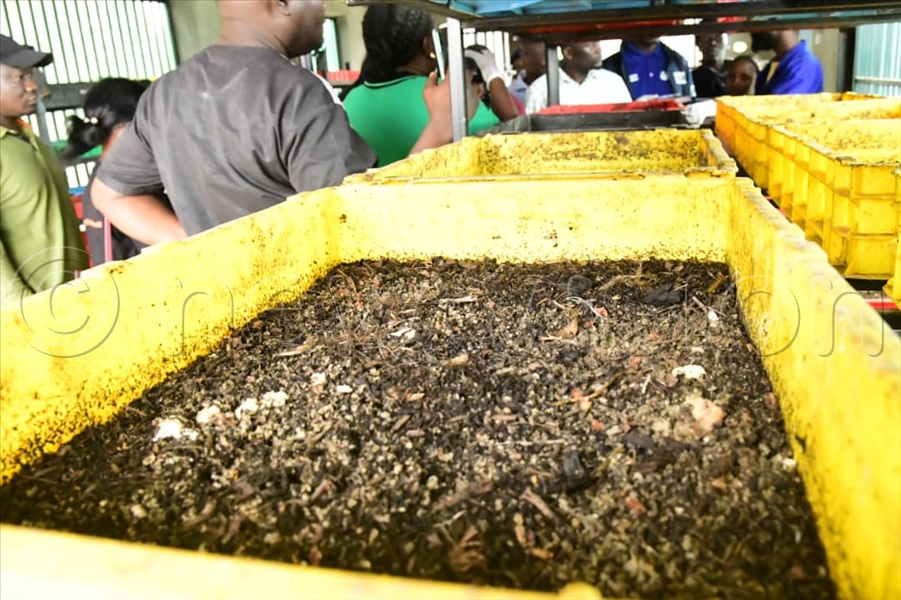
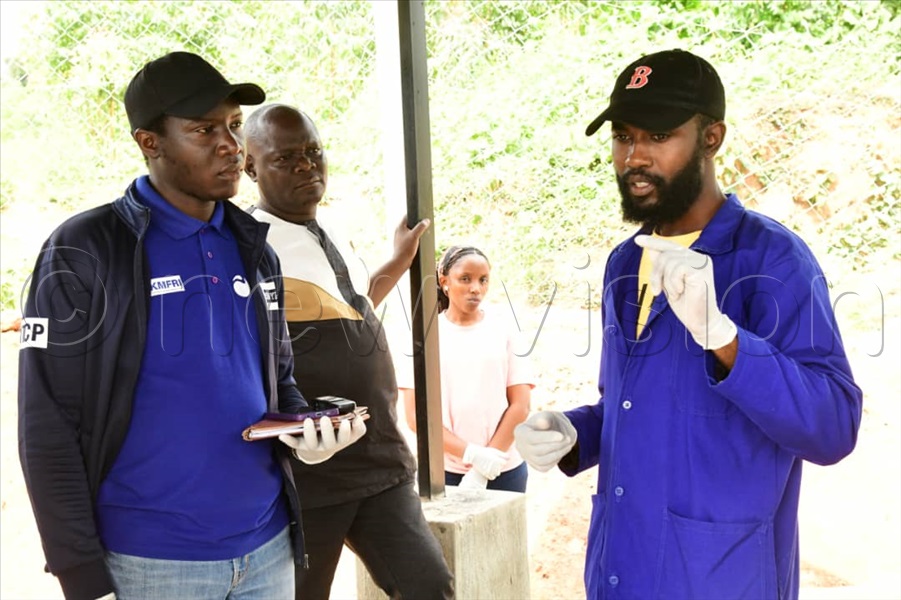
He said the fertilisers were being made using special machinery imported from the US that makes the green manure, and 40 bags can be applied in the garden.
“This is revolutionary, and it is made in Uganda. I ask the farmers of Uganda to use organic new earth, let us make the environment a better place to live in for the next generation. Let us make our crops pure organic,” he said, adding that the company got the certification.